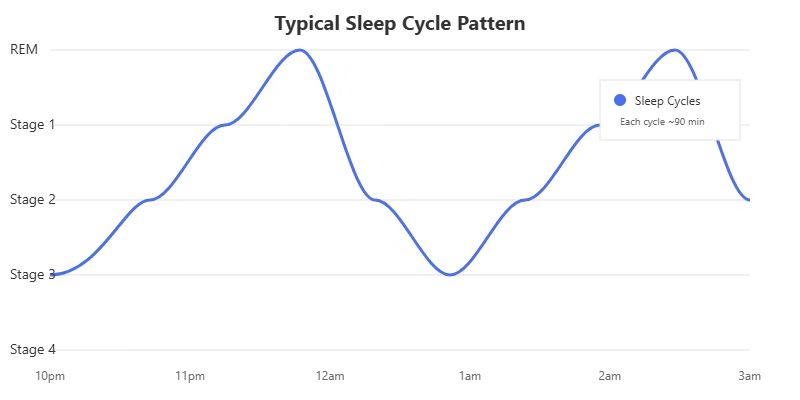Why Sleep Matters
In our fast-paced world, quality sleep has become increasingly elusive. Yet, it remains one of the fundamental pillars of good health, affecting everything from cognitive function to emotional well-being. Poor sleep doesn’t just leave you feeling tired – it can impact your decision-making abilities, weaken your immune system, and even affect your weight management goals.
Common Sleep Disruptors
Before diving into solutions, it’s essential to understand what might be preventing you from getting restorative sleep. Modern life presents unique challenges to our sleep patterns:
- Digital devices emitting blue light
- Irregular work schedules
- Stress and anxiety
- Inconsistent sleep routines
- Environmental factors like noise and temperature
- Dietary choices, particularly caffeine and alcohol consumption
10 Actionable Tips for Better Sleep
1. Optimize Your Sleep Environment
Transform your bedroom into a sleep sanctuary. Maintain a temperature between 60-67°F (15-19°C), use blackout curtains to minimize light exposure, and invest in a comfortable mattress and pillows. Consider using white noise to mask disruptive sounds.
2. Establish a Consistent Sleep Schedule
Your body’s internal clock thrives on routine. Go to bed and wake up at the same time every day – even on weekends. This consistency helps regulate your circadian rhythm, making it easier to fall asleep and wake up naturally.
3. Create a Relaxing Bedtime Ritual
Develop a 30-60 minute wind-down routine that signals to your body it’s time to sleep. This might include:
- Reading a physical book
- Practicing gentle stretches
- Taking a warm bath
- Using relaxation techniques like deep breathing
- Writing in a gratitude journal
4. Manage Light Exposure
Light exposure plays a crucial role in regulating your sleep-wake cycle. Get plenty of natural sunlight during the day, especially in the morning. In the evening, reduce exposure to artificial light:
- Use blue light filtering apps on devices
- Switch to warm, dim lighting 2-3 hours before bed
- Avoid screens 1 hour before sleep
5. Monitor Your Diet
What you eat and drink can significantly impact your sleep quality:
- Avoid caffeine after 2 PM
- Don’t eat heavy meals within 3 hours of bedtime
- Limit alcohol, which can disrupt REM sleep
- Consider sleep-promoting foods like tart cherries, almonds, and chamomile tea
6. Exercise Strategically
Regular physical activity can improve sleep quality, but timing matters. Aim to complete moderate to vigorous exercise at least 3 hours before bedtime. Morning exercise, particularly outdoors, can help regulate your circadian rhythm.
7. Address Stress and Anxiety
Mental activity can keep you awake long after your head hits the pillow. Implement stress-management techniques:
- Practice mindfulness meditation
- Try progressive muscle relaxation
- Keep a worry journal to process concerns before bed
- Consider cognitive behavioral therapy for persistent sleep anxiety
8. Optimize Your Naps
If you nap, do it right. Limit daytime naps to 20-30 minutes and avoid napping after 3 PM. This helps prevent interference with nighttime sleep while still providing restorative benefits.
9. Use the 15-Minute Rule
If you can’t fall asleep after 15 minutes, don’t lie in bed tossing and turning. Get up, go to another room, and engage in a calming activity until you feel sleepy. This helps maintain the association between your bed and sleep.
10. Track Your Sleep Patterns
Monitor your sleep habits and their impact on your quality of rest:
- Keep a sleep diary
- Use a sleep tracking device or app
- Note patterns in sleep quality related to daily activities
- Adjust your routine based on what works best for you
Sleep Stages and Their Importance

Understanding sleep cycles can help you optimize your rest. A typical night involves 4-6 cycles through different sleep stages, each playing a crucial role in physical and mental restoration.
Expert Tips for Common Sleep Challenges
Sleep specialists recommend specific approaches for different sleep disruptions. Whether you’re dealing with racing thoughts, physical discomfort, or environmental disturbances, there’s a solution that can help improve your sleep quality.
Taking Action for Better Sleep
Quality sleep isn’t a luxury – it’s a necessity for optimal health and well-being. Start implementing these evidence-based strategies tonight, and track your progress over time. Remember that sustainable change often happens gradually, so be patient with yourself as you develop healthier sleep habits.
Share your biggest sleep challenges in the comments below, or let us know which of these strategies works best for you. Sweet dreams!
References and Additional Resources:


